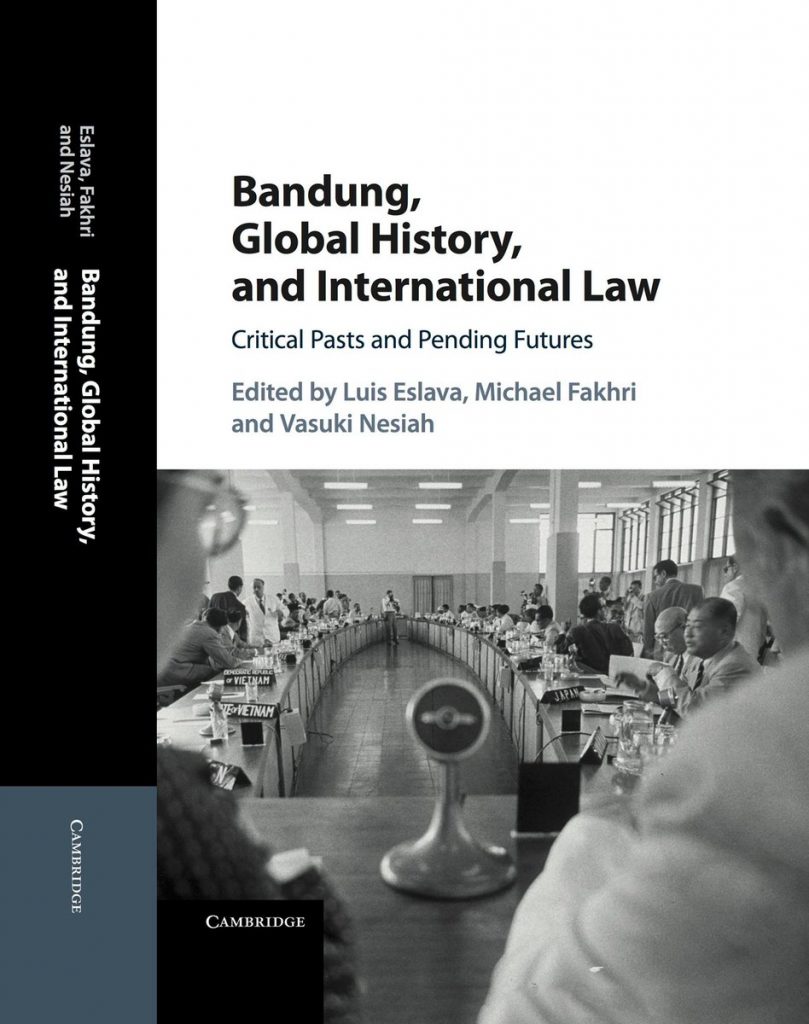A book co-edited by Kent Law School Senior Lecturer Dr Luis Eslava has been cited by Brazilian Judge Antônio Augusto Cançado Trindade in his Separate Opinion to the International Court of Justice’s recent Chagos Advisory Opinion
The book, Bandung, Global History and International Law (Cambridge University Press, 2017), was referenced by Judge Trindade in the context of the ICJ’s landmark Advisory Opinion on the legal consequences of the separation of the Chagos Archipelago from Mauritius in 1965.
Dr Eslava said: ‘Judge Trindade cited the collection – together with two other recent books on the contribution of Third World states to the development of international law – in order to support his argument that the 1955 Bandung Conference (the focus of our project) affirmed unequivocally the importance of ending colonialism in all of its forms and the centrality of self-determination in the current international legal order. According to Trindade, the Bandung Conference was a clear expression of the awakening of an universal juridical conscience (while citing pages in our book that speak particularly to a Third World consciousness).’
The volume, co-edited with Professor Vasuki Nesia (New York University) and Professor Michael Fakhri (University of Oregon), brings together a network of 43 scholars from across the Global South and the North to reflect on the legacies of the 1955 Bandung Conference for the international order. It was supported by funding from Kent Law School, New York University, the University of Oregon, and a grant from the Harvard Law School’s Institute for Global Law and Policy.
In his endorsement for the book, Professor Arturo Escobar, Kenan Distinguished Professor of Anthropology at the University of North Carolina, said: ‘There is a thread that runs from the ‘Third World’ to the ‘Global South,’ from anti-imperialist struggles to the World Social Forum, from decolonization to the contemporary polycentric world. This genealogical thread is suffused with the ‘Spirit of Bandung,’ a spirit of resistance to the imperious West, of negotiated understandings of the law, of critical and autonomous intellectual thought. As this lucid, engaging and engaged collection shows, the legacy of Bandung continues to be central not only to the former Third World, but to the entire globe. This book is an unsuspected and incredibly rich tool to all those seeking to understand the paths towards the civilizational transitions needed to face the multiple crises of climate, food, poverty, and meaning.’
Professor Martti Koskenniemi, Director of the Erik Castrén Institute of International Law and Human Rights at the University of Helsinki echoed this assessment of the Bandung volume: ‘It is hard to imagine a more important historical project today. Looking backwards and forward from 1955, the essays in this volume illuminate the projects of third world intellectuals, diplomats, and lawyers to transform politics and priorities in the international system.’
Dr Eslava is Co-Director of the Centre for Critical International Law (CeCIL) at Kent. His book Local Space, Global Life: The Everyday Operation of International Law (Cambridge University Press, 2015) was awarded the Hart Socio-Legal Book Prize and the Prize for Early Career Academics by the Socio-Legal Studies Association (SLSA) in 2016. He has research interests in the emergence of local jurisdictions (eg cities and municipalities) on the international scene using an ethnographic approach. His fieldwork and writing in this area interrogates the rationale and contradictions that have accompanied such trends, using different locations in the Global South as case studies. Bringing together insights from anthropology, history and legal and social theory, his research explores the multiple ways in which international norms, aspirations and institutional practices, both old and new, come to shape and become part of people’s everyday life, arguing that closer critical attention needs to be paid to this co-constitutive relationship between international law “up there” and life “down here”.

